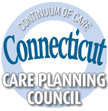When faced with long-term nursing home placement, countless individuals and their loved ones lament having to consider them in the first place. However, in many cases, the 24-hour supervision and specialized services provided in these facilities are essential elements of necessary long-term care. It is quite simply not always a safe option to reside in a private home, even with in-home assistance. So, what comes next? It is imperative that a skilled nursing facility (SNF) is carefully chosen and that advocacy while residing in the nursing facility is truly an ongoing process.
The 2005 report by Justice in Aging titled “20 Common Nursing Home Problems—and How to Resolve Them” outlines several observations, trends, and tips for residents and prospective residents. For more information, visit www.justiceinaging.org. Part one of this blog will discuss five common issues.
#1 Discrimination Against Medicaid Eligible Residents. Approximately one-half of SNF revenue is drawn from the Medicaid program. Medicaid rates also tend to be the lowest behind Medicare and private-pay rates. Federal law states that Medicaid-eligible residents are entitled to the same level of service provided to any other nursing home resident. It is important to remember that the Nursing Home Reform Law mandates high-quality care for all. Staff members can never claim that care should be any different as a result of the payment source.
#2 Lack of Involvement in the Care Planning Process. SNF mandates state that a full assessment of a resident’s condition is done within 14 days of admission and thereafter once a year or following a significant change of condition. Assessments follow a standardized document known as the Minimum Data Set (MDS). The team responsible for preparing the care plan is a multi-disciplinary one; including for example, members of the nursing, therapy, recreation, and nutritional staff. The care plan can be invaluable in developing individualized care, and therefore should always include the legal representative and/or vital family member of the resident. SNF staff should always schedule care planning meetings in consideration of the resident advocates’ schedules so that they can be present. The care planning meeting is an important opportunity for the resident advocates to voice their opinions, concerns, or simply to listen to updates to ensure that everyone is on the same page.
#3 Improper Use of Physical Restraints. Restraints can never been used as a form of discipline or for the convenience of the SNF staff. Restraints which limit a resident’s ability to move can cause increased unsteadiness and susceptibility to falls and injuries. To prevent resident wandering there are a few options which can be exercised by SNF staff, including increasing staff numbers for more supervision, utilizing an electronic monitoring system, and implementing more meaningful activities for residents to combat boredom.
#4 Improper Use of Behavior-Modifying Medication. These medications should only be utilized to treat a resident’s symptoms and medical conditions. They should solely benefit the resident and not be utilized for the sole purpose of benefiting the SNF by making the resident more manageable. It is the right of the resident and/or the resident’s representative to refuse the use of behavior-modifying medications if they feel that the medications have been used in excess, or are premature etc.
#5 Excessive Use of Feeding Tubes. The use of a feeding tube should not occur because a resident simply refuses to eat, but rather as a last resort intervention. Studies have found that tube feeding does not reduce the risk of aspiration and does not increase the length of survival of residents with dementia. It is the SNF staff’s responsibility to provide necessary assistance when a resident is very slow to eat. This could require an increase in staffing or staggered mealtimes. The insertion of a feeding tube is a medical procedure and is not to be executed without the consent of the resident or the resident’s representative.
A blog in the near-future will feature five more skilled nursing facility problems and some tips on how to address them as you advocate for your loved ones.
At Weatherby & Associates, PC, we support the ongoing job of caregiving and what that role means when a loved one is in a skilled nursing facility. If you have any questions about decision-making and planning for your loved one, contact us at 860-769-6938.





